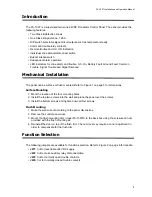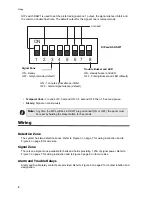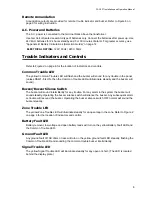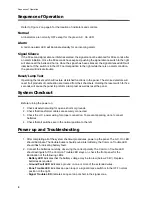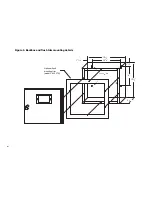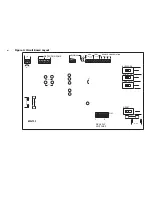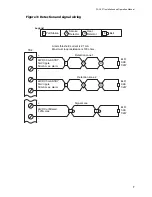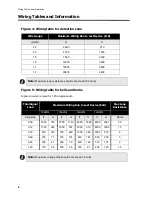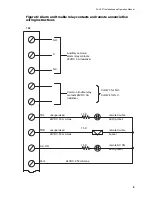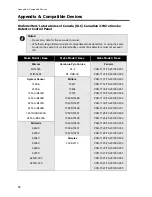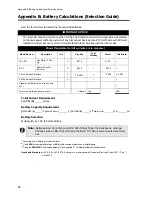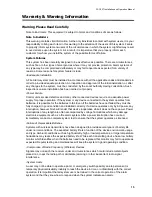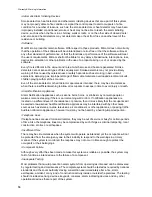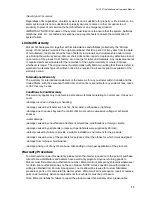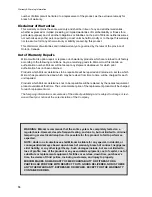
FA-102T Installation and Operation Manual
15
Warranty & Warning Information
Warning Please Read Carefully
Note to End Users: This equipment is subject to terms and conditions of sale as follows:
Note to Installers
This warning contains vital information. As the only individual in contact with system users, it is your
responsibility to bring each item in this warning to the attention of the users of this system. Failure
to properly inform system end-users of the circumstances in which the system might fail may result
in over-reliance upon the system. As a result, it is imperative that you properly inform each
customer for whom you install the system of the possible forms of failure.
System Failures
This system has been carefully designed to be as effective as possible. There are circumstances,
such as fire or other types of emergencies where it may not provide protection. Alarm systems of
any type may be compromised deliberately or may fail to operate as expected for a variety of
reasons. Some reasons for system failure include:
•
Inadequate Installation
A Fire Alarm system must be installed in accordance with all the applicable codes and standards in
order to provide adequate protection. An inspection and approval of the initial installation, or, after
any changes to the system, must be conducted by the Local Authority Having Jurisdiction. Such
inspections ensure installation has been carried out properly.
•
Power Failure
Control units, smoke detectors and many other connected devices require an adequate power
supply for proper operation. If the system or any device connected to the system operates from
batteries, it is possible for the batteries to fail. Even if the batteries have not failed, they must be
fully charged, in good condition and installed correctly. If a device operates only by AC power, any
interruption, however brief, will render that device inoperative while it does not have power. Power
interruptions of any length are often accompanied by voltage fluctuations which may damage
electronic equipment such as a fire alarm system. After a power interruption has occurred,
immediately conduct a complete system test to ensure that the system operates as intended.
•
Failure of Replaceable Batteries
Systems with wireless transmitters have been designed to provide several years of battery life
under normal conditions. The expected battery life is a function of the device environment, usage
and type. Ambient conditions such as high humidity, high or low temperatures, or large temperature
fluctuations may reduce the expected battery life. While each transmitting device has a low battery
monitor which identifies when the batteries need to be replaced, this monitor may fail to operate as
expected. Regular testing and maintenance will keep the system in good operating condition.
•Compromise of Radio Frequency (Wireless) Devices
Signals may not reach the receiver under all circumstances which could include metal objects
placed on or near the radio path or deliberate jamming or other inadvertent radio signal
interference.
•System Users
A user may not be able to operate a panic or emergency switch possibly due to permanent or
temporary physical disability, inability to reach the device in time, or unfamiliarity with the correct
operation. It is important that all system users be trained in the correct operation of the alarm
system and that they know how to respond when the system indicates an alarm.

